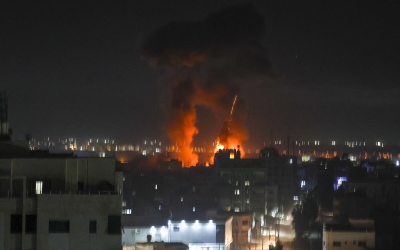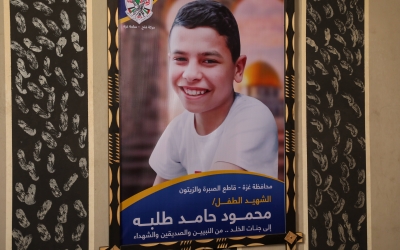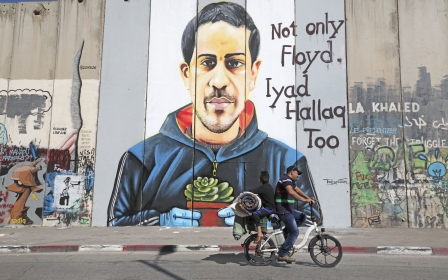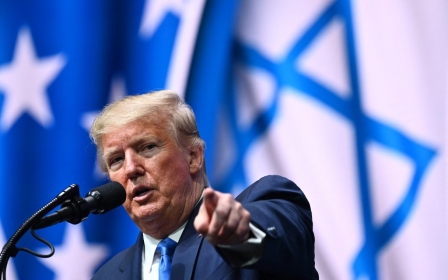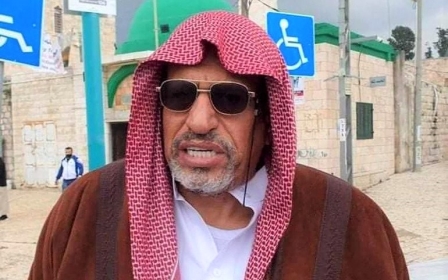Gaza: Why Hamas didn't retaliate against Israel's latest air strikes
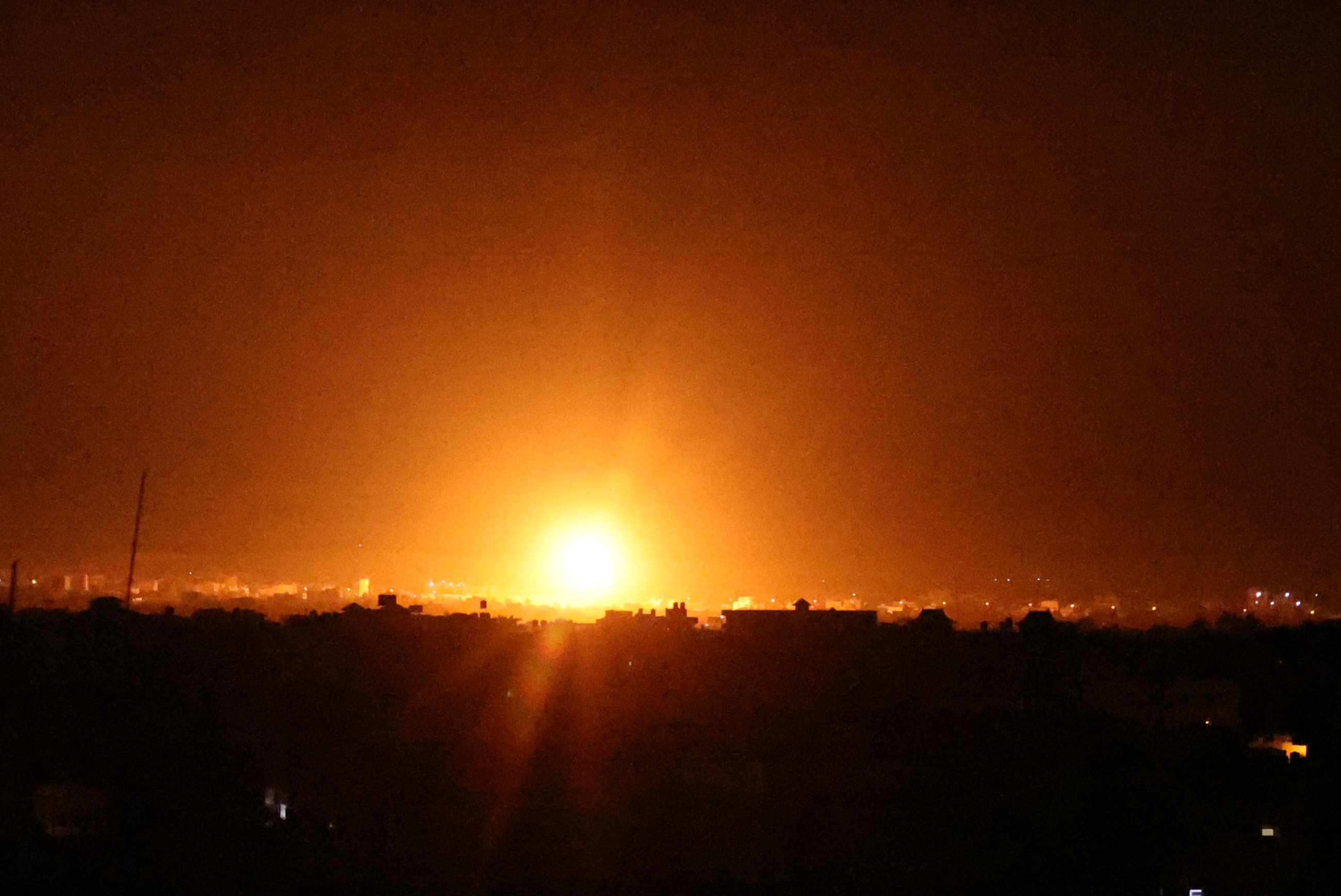
The besieged Gaza Strip found itself yet again under the shadow of Israeli warplanes during an 11-day offensive in May, which left in its wake hundreds of casualties and mass destruction.
The subsequent - unconditional - ceasefire signed under the auspices of Egypt didn't end Gaza's woes. Many here are still suffering: be it from the loss of loved ones; the scenes of destruction; the impact on infrastructure; Israeli restrictions on who or what can enter the territory; or the reduction of the fishing zone to just six nautical miles off the coast.
Israel has kept the Erez crossing to Gaza's north closed except for emergency cases, and prevented the entry of mail from the West Bank or abroad. At the Kerem Shalom crossing in the south, Israeli authorities prevent most non-food goods from entering, along with fuel designated for Gaza's only power station.
Many politicians and analysts describe the recent ceasefire agreement as still fragile, especially in light of this tightening of the siege on Gaza and the continuation of what is seen as provocations in Jerusalem, such as Tuesday's far-right "Flag March".
Israeli restrictions prompted Hamas and other Palestinian factions to repeat some activities carried out during the Great March of Return along the separation fence, from burning tyres at night to launching incendiary and explosive balloons towards Israeli land beyond Gaza's territory.
Israel responded by launching air strikes on Gaza overnight Wednesday and Thursday, allegedly targeting Hamas training sites, and stoking fears that rocket exchanges could resume less than a month after they halted.
Palestinian factions, led by Hamas, warned Israel against continuing violations against Palestinians in Jerusalem, which sparked May's escalation.
But they did not respond to Israeli strikes despite those being a violation of the ceasefire agreement.
Hamas said through its spokesman, Hazem Qassem: "The Zionist bombing of the Gaza Strip is a failed attempt to stop our people's solidarity and resistance with the Holy City and to cover up the unprecedented state of confusion for the Zionist establishment in organising the so-called Flag March."
Why no response?
Analysts say that Hamas is not interested in firing rockets again from the Gaza Strip, which would likely trigger a heavy Israeli response and more Palestinian deaths, preferring instead to give mediators the chance to try to change conditions in the territory post-bombardment.
"Hamas will act with restraint during the next stage, whether for weeks or months," said Mukhaimar Abu Saada, a professor of political science at Al-Azhar University in Gaza, "especially in light of the presence of a serious Israeli government, headed by one of the key figures of the Israeli right."
This, he added, would give Egypt leverage to help open the crossings again.
"Hamas needs to restore what was destroyed in the last war," Abu Saada added, "whether at the level of its military capabilities or the reconstruction of the Gaza Strip, and create an opportunity for funds to enter [the territory]."
According to the ceasefire agreement, additional talks will be held between the Palestinian factions in Gaza and Israel, under Egyptian mediation, to discuss mechanisms for reaching a long-term truce.
"Factions in the Gaza Strip decided to double their pressure on Israel before the start of new talks in Egypt next week," Lebanese newspaper Al-Akhbar quoted Palestinian sources as saying.
The sources also indicated that after Israeli attacks on Hamas sites in Gaza on Wednesday, a message was passed to an Egyptian mediator stating that the attacks were seen as "violating the rules, and will lead to an escalation".
The message reportedly also stated: "Popular pressure will... increase with time, until Israel reverses its steps, especially on the issue of fishing space, closing the crossings, letting Qatari aid into Gaza, and allowing in materials for reconstruction."
Husam al-Dajani, a professor of political science at Ummah University in Gaza, said that new Israeli Prime Minister Naftali Bennett is trying to find a balance in the Israeli response so that he satisfies the Israeli right without reigniting the fuse of conflict.
Leverage
Dajani believes that Hamas' failure to respond to the Israeli bombardments this week was designed "to give the mediators an opportunity to put pressure on Israel and improve living conditions in the Gaza Strip".
Palestinians in Gaza have complained about the tightening of the Israeli siege and the reduction in commercial traffic in and out of the coastal enclave, which was already limited from the coronavirus pandemic and years of siege.
Bassem al-Batniji, a clothes merchant, said that business has almost stopped due to the lack of goods in Gaza.
"We lost the Eid al-Fitr season because it came during the war, and now we are waiting for the Eid al-Adha season, but we cannot bring in new goods in light of the closure of the crossings, even after the end of the war.
"The conditions are getting more difficult day by day," he told MEE.
Israel imposed a tight siege on the Gaza Strip in 2007, soon after Hamas won elections there. The ongoing blockade has eased and tightened at different moments, often triggering military retaliation and violence.
Political analyst Ibrahim Abrash said that Gaza will be in limbo between war and peace for a long time, without ending the division or finding a political path that reaches a workable solution.
"In the short term, for a year or a little more, the priority will be absorbing the results of the recent military confrontation and the reconstruction process," Abrash said to MEE.
Abrash believes that Hamas will take advantage of the current circumstances to "strengthen its foreign relations, instead of a return to escalation," which "would make the humanitarian situation in the Gaza Strip even more difficult".
This article is available in French on Middle East Eye French edition.
Middle East Eye delivers independent and unrivalled coverage and analysis of the Middle East, North Africa and beyond. To learn more about republishing this content and the associated fees, please fill out this form. More about MEE can be found here.


